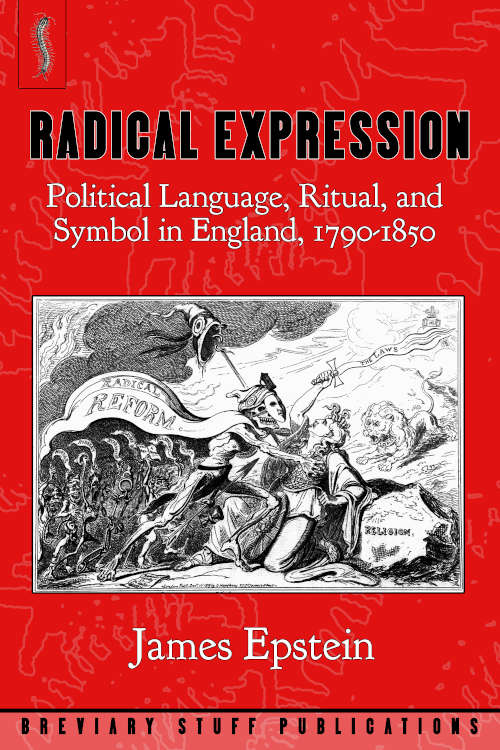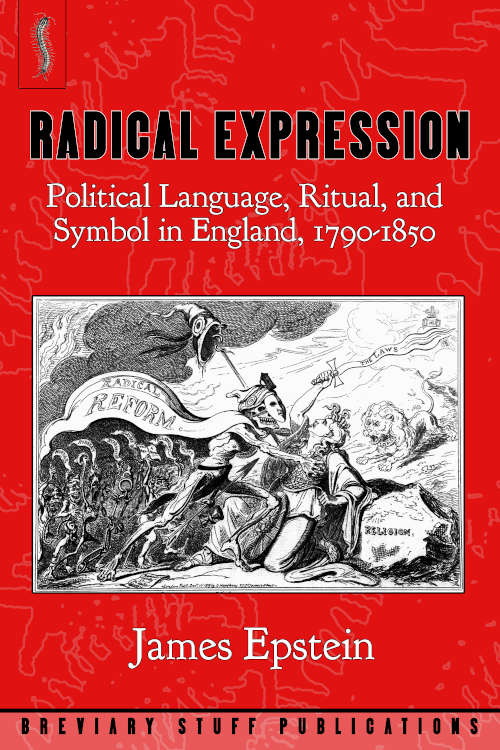- Preface
- Acknowledgements
- 1 The Constitutionalist Idiom
- 2 Narrating Liberty’s Defence
- T. J. Wooler and the Law
- 3 Understanding the Cap of Liberty
- Symbolic Practice and Social Conflict in Early-Nineteenth-Century England
- 4 Reason’s Republic
- Richard Carlile, Zetetic Culture, and Infidel Stylistics
- 5 Rituals of Solidarity
- Radical Dining, Toasting, and Symbolic Expression
- Notes
- Index
James Epstein – Radical Expression
£15.00
Exploring a set of related themes dealing with popular radical language, ideology, and communication in late eighteenth-century and early nineteenth-century England, Radical Expression re-examines the rhetoric of popular constitutionalism and the associated repertoire of constitutionalist mobilization.
James Epstein argues that, despite the impulses of the French revolution, popular constitutionalism remained the dominant idiom within which radicals framed their democratic demands. The constitutionalist idiom was a “shared” cultural inheritance, a “master fiction” defining England’s place in the universe of nations. It was for this reason that radicals struggled to appropriate its language, to give their own accent to its central terms and to tell the “real” story of the nation’s constitutional past.
Epstein places particular emphasis on the symbolic and ritual elements within popular radicalism, including chapters on the dense web of meanings associated with the cap of liberty and the rituals of radical commemoration, toasting, and dining. As a counterpoint to the book’s emphasis on constitutionalist modes of argumentation and mobilization, the book also includes a sustained consideration of the language, culture, and style of plebeian rationalism.
Radical Expression makes an important contribution to discussions on the formation of political ideologies and communities of opinion.





